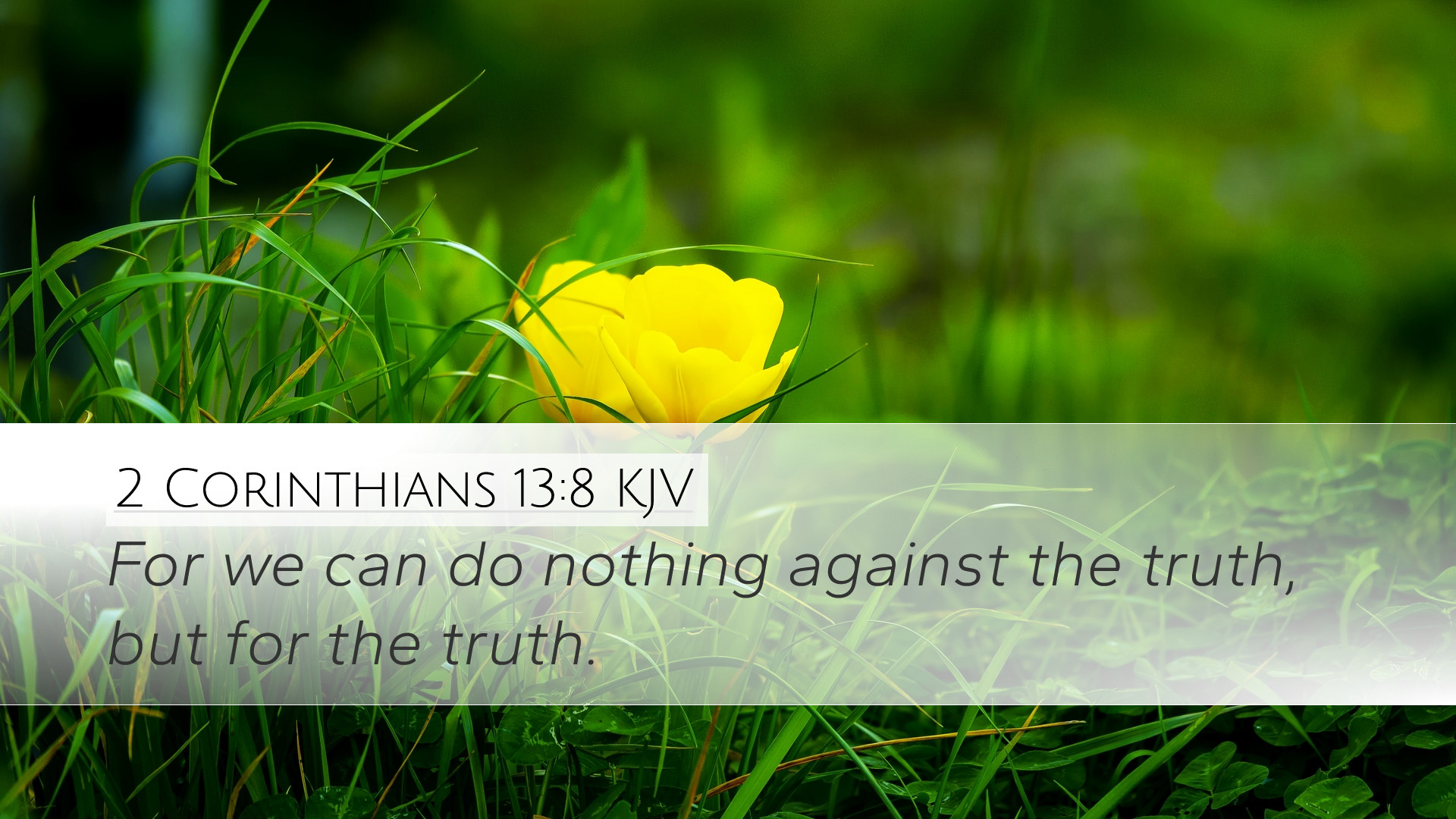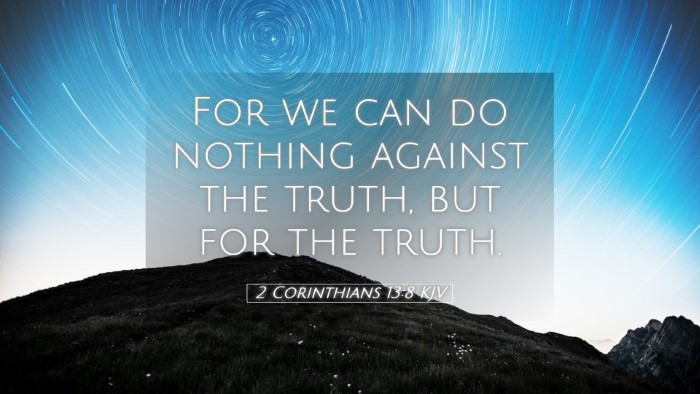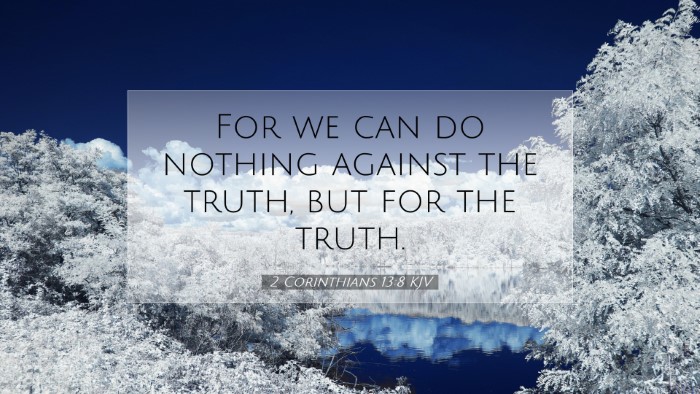Old Testament
Genesis Exodus Leviticus Numbers Deuteronomy Joshua Judges Ruth 1 Samuel 2 Samuel 1 Kings 2 Kings 1 Chronicles 2 Chronicles Ezra Nehemiah Esther Job Psalms Proverbs Ecclesiastes Song of Solomon Isaiah Jeremiah Lamentations Ezekiel Daniel Hosea Joel Amos Obadiah Jonah Micah Nahum Habakkuk Zephaniah Haggai Zechariah Malachi2 Corinthians 13:8
2 Corinthians 13:8 KJV
For we can do nothing against the truth, but for the truth.
2 Corinthians 13:8 Bible Commentary
Commentary on 2 Corinthians 13:8
Verse: “For we can do nothing against the truth, but for the truth.”
Introduction
The Apostle Paul's words in 2 Corinthians 13:8 resonate powerfully throughout Christian history, emphasizing the foundational principle that the truth is immutable and invincible. This commentary synthesizes insights from renowned public domain commentators such as Matthew Henry, Albert Barnes, and Adam Clarke, offering a rich exploration of this profound verse.
Contextual Analysis
This passage finds its place in the concluding remarks of Paul's second epistle to the Corinthians. Paul addresses a community rife with challenges and false teachings, affirming his apostolic authority while underscoring the paramount importance of truth.
Exegesis of the Verse
Paul's Affirmation of Truth
Matthew Henry emphasizes that Paul's assertion is a declaration of his commitment to the truth of the Gospel. He writes that truth’s nature compels the believer towards integrity and righteousness. No effort or opposition can alter the essence of truth, encapsulating its divine origin.
The Powerlessness Against Truth
Albert Barnes elaborates on the notion that "we can do nothing against the truth." He opines that human efforts, whether through denials or challenges to God's revealed truth, will ultimately prove futile. The verse serves as a reminder of divinely ordained stability in truth which cannot be swayed by human reasoning or opposition.
For the Truth—A Call to Action
Adam Clarke highlights that “for the truth” is a call for believers to actively promote and stand for truth. He argues that the Christian community is called not only to recognize truth but to engage it, which necessitates a life that reflects God’s truth through action and testimony.
Theological Implications
The implications of this verse are vast. The acknowledgment that one cannot act against the truth speaks profoundly to notions of divine sovereignty, human responsibility, and the ultimate triumph of the Gospel.
- Divine Sovereignty: The truth emanates from God; therefore, it stands beyond human manipulation.
- Human Responsibility: While truth cannot be suppressed, it remains believers' duty to uphold it in their conduct.
- Gospel Witness: The commitment to truth is crucial for effective witness to the world, reflecting Christ's character in our lives.
Applications for Pastors and Theologians
For pastors, this verse offers a solid foundation for preaching integrity and transparency within their congregations. Its affirmation that all efforts not aligned with truth are ultimately futile serves as a powerful reminder to shepherds to focus their ministries firmly on the unchanging truths of Scripture.
Theologians will find robust discussions surrounding the nature of truth and its implications for systematic theology. The verse prompts reflection on the nature of divine revelation and the inherent characteristics of biblical truth.
Conclusion
In conclusion, 2 Corinthians 13:8 encapsulates a timeless principle that resonates across generations of believers. The immutable nature of truth challenges each individual and community to align their lives around God's revelation, standing unwaveringly for what is right, even amid opposition. This verse encourages continued exploration of the nature of truth, ensuring that all assertions made by believers are aligned with the transformative power of the Gospel.


